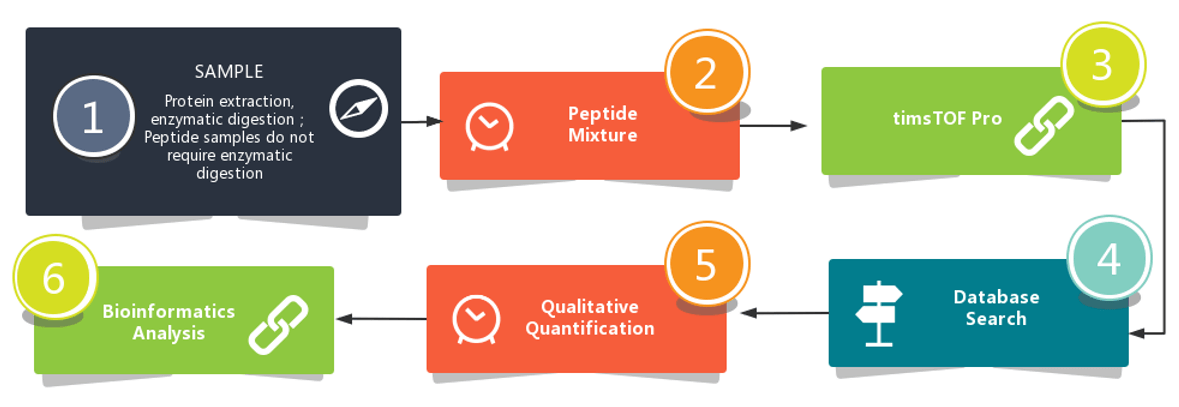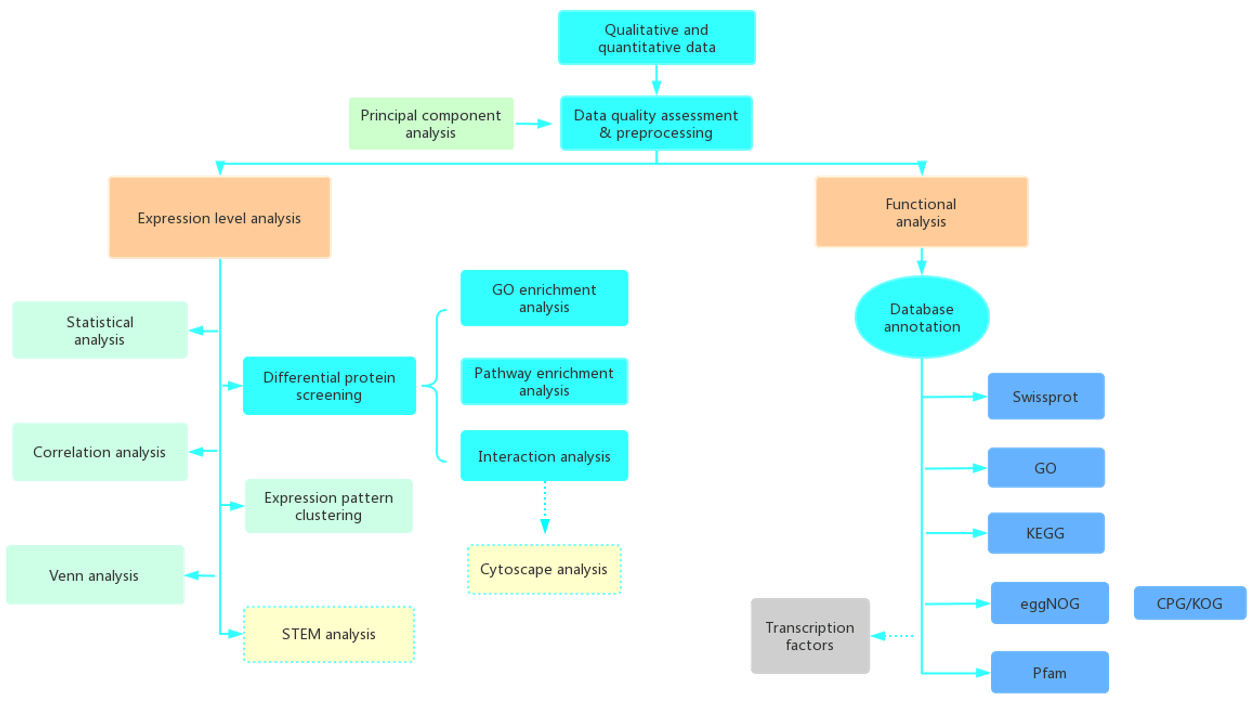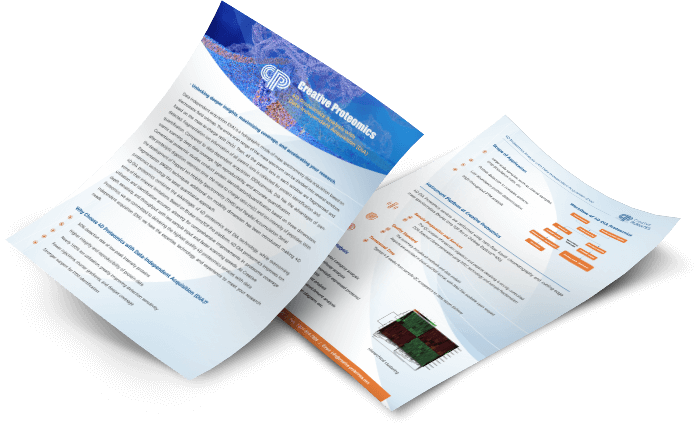Sweat Quantitative Proteomic Solutions
Sweat acts as a medium connecting the inside and outside of the skin barrier, and its role in skin humidity maintenance, temperature regulation and biological defense is irreplaceable. Sweat is a colorless, clear and hypotonic fluid secreted by sweat glands that plays a vital role in maintaining skin homeostasis.
In recent studies, more and more antibacterial components and immune factors have been found in sweat, which indicates that sweat may play an important role in the immune system of the body, and may reflect immune system activity through the antimicrobial and immune components in sweat. In sweat, not only antibody types such as immunoglobulin (Ig) A, IgE and IgG can be found, but also cells including tumor necrosis factor (TNF)-a, transforming growth factor (TGF)-β and other cytokines have been identified.
Research on sweat is not only limited to basic component studies, but also has important clinical applications. Sweat chloride is a widely accepted biomarker, and the determination of chloride levels in sweat is of great value in the diagnosis and treatment of cystic fibrosis. In addition, researchers have carried out research on non-invasive sweat glucose detection as an alternative to traditional invasive glucose monitoring, which can help diabetic patients to monitor blood glucose in a dynamic, non-invasive, and convenient way.
Although sweat is a new and promising biological fluid, the relatively low content of analytes and the difficulty of detection technology limit the development of sweat in the field of biomarkers. Currently, with the rapid development of mass spectrometry technology, we can detect the components in sweat qualitatively and quantitatively, and it also allows us to further understand the pathogenesis of specific diseases from sweat proteome and metabolome data. These techniques, especially DIA-based mass spectrometry, are more suitable for the detection of biological samples with low analyte content and large cohort clinical samples.
Our Quantitive Proteomics Service for Sweat Analysis
Based on DIA technology, we have launched target proteomics and discovery proteomics services to detect proteins and other analytes in sweat samples with high throughput, helping you explore novel biomarkers and accelerate the research process for diagnosis, prognosis, and treatment of related diseases.
Workflow
The depth and relatively straightforward nature of our workflow enable the powerful detection of biomarkers of specific diseases.

Data Analysis

Advantages of Our Technologies
- High accuracy: QC CV as low as 25% for large projects
- High throughput, up to 9000 proteins can be quantified at once
- Quantitatively identify nearly all detectable molecules, covering low-abundance proteins/peptides
- High repeatability, increased by 30% and up to 90%
- Complete and comprehensive information storage of samples in the first analysis
- Standard data and advanced data analysis
- Cost-effective
Sample Requirements
| Sample Type | Protein | # of Cell | Sweat |
| Quantify | 100 ug | 1×107 cells | 500 uL |
Report
- Experimental steps
- Relevant experiment parameters
- Mass spectrometry spectra
- Raw data
- Proteomics analysis results
Since we begin to provide DIA technology service, we have accumulated a lot of experience not only in detecting large cohort conventional samples but also providing a one-stop service of DIA+PRM+machine learning for biomarker studies, tumor-based proteomic typing and large cohort of clinical sample proteomic analysis based on next-generation chromatography (Evosep DIA). Please contact us for a free consultation.
* For Research Use Only. Not for use in the treatment or diagnosis of disease.




 4D Proteomics with Data-Independent Acquisition (DIA)
4D Proteomics with Data-Independent Acquisition (DIA)